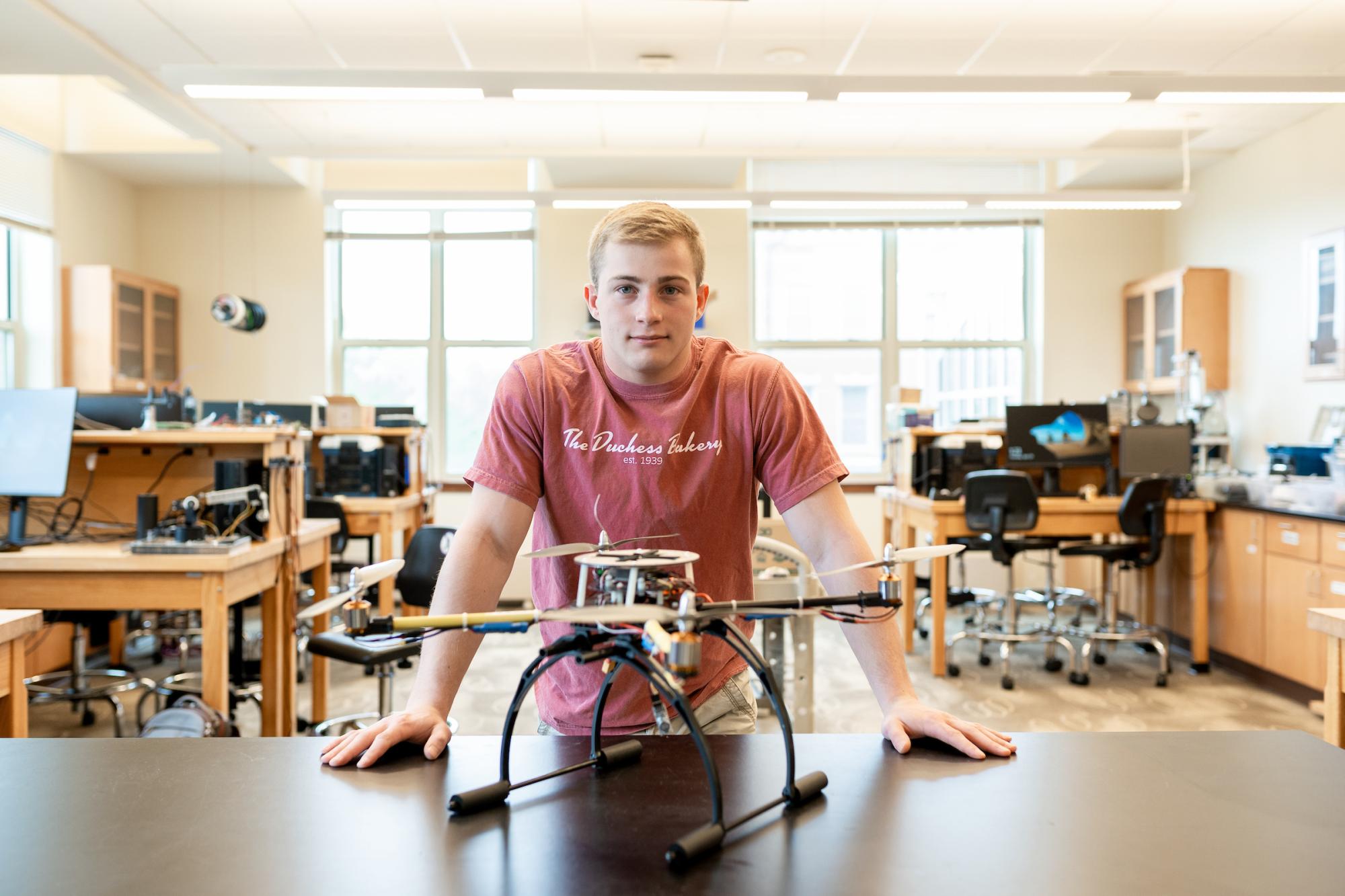Physics B.A. Data Science Major
Big data is a big business – and it’s only growing.
With millions of terabytes of data being collected and stored, companies around the globe are in need of employees with the skills to navigate, and analyze these complex datasets.
Here in the UNI Department of Physics, our Data Science major combines the creative problem solving foundations of physics with technical courses that develop skills in statistics, business analytics, coding and modeling.
With this unique set of skills, our graduates are well prepared to thrive in the data-driven workplaces of the future.


Top
ranked
The Physics program at UNI ranks in the top 15% nationally for students graduating from a bachelor's only department.
Average
salary
Average salary for Data Scientist in the U.S. (Glassdoor.com).
Job
growth
Jobs in data-related fields are growing rapidly and our graduates are positioned to excel in those jobs.
Find out More About Physics Data Science
Fill out your information here and we'll be in touch!
Contact us directly at:
UNI Department of Physics
University of Northern Iowa
215 Begeman Hall
Cedar Falls, Iowa 50614-0150
Phone: 319-273-2420
Email: physics@uni.edu
Opportunities for Students
Kickstart your future
UNI's Physics program will arm you with the skills needed to thrive in a variety of high-demand fields in both the public and private sectors. Common careers include:
- Data Scientist
- Data Analyst
- Business Analyst
- Data Engineer
- Quantitative Engineer
- Applied Data Scientist

Build your skills
Our coursework focuses on hands-on labs – letting students learn by working with high-tech, industry-grade tools and equipment. Typical career track courses include:
- First-year Projects in Physics
- Physics III: Theory and Simulation
- Modern Physics Laboratory
- Introduction to Statistical Methods
- Statistics for Business Analytics
- Decision Analytics

Kickstart your future
UNI's Physics program will arm you with the skills needed to thrive in a variety of high-demand fields in both the public and private sectors. Common careers include:
- Data Scientist
- Data Analyst
- Business Analyst
- Data Engineer
- Quantitative Engineer
- Applied Data Scientist

Build your skills
Our coursework focuses on hands-on labs – letting students learn by working with high-tech, industry-grade tools and equipment. Typical career track courses include:
- First-year Projects in Physics
- Physics III: Theory and Simulation
- Modern Physics Laboratory
- Introduction to Statistical Methods
- Statistics for Business Analytics
- Decision Analytics

Doing undergraduate research was an amazing experience. It allowed me to explore my strengths and see physics in a real-world setting, as opposed to just the classroom.
Preparing you for careers of the future
The workforce is changing. More than ever, employers are seeking workers with cross-training and a diverse set of skills. That’s why we’ve crafted our curriculum to meet the needs of the future workplaces.
Our graduates are equipped to do many things: code, build and troubleshoot electronics, analyze data, implement modeling systems, and more. This kind of cross-training builds resilient workers, who can quickly change focus when their job requires it.
In addition, our Physics Seminar class – required for everyone in our department – prepares students for life after graduation. Students participate in physics colloquia; prepare an oral report on a research topic or internship, draft their resume/CV, participate in interviews, and perform job and graduate school searches.

Hands-on Learning
Our department prides itself on the close interaction between faculty and students both inside and outside the classroom. Personalized attention, combined with research opportunities and independent laboratory projects, allows students to work with sophisticated equipment and to gain research experience at the undergraduate level.
Students have opportunities to work with faculty in such research areas as magnetic properties of materials, computational materials science, biological physics, statistical physics, optical spectroscopy, low-dimensional structures and surfaces, and physics education.
